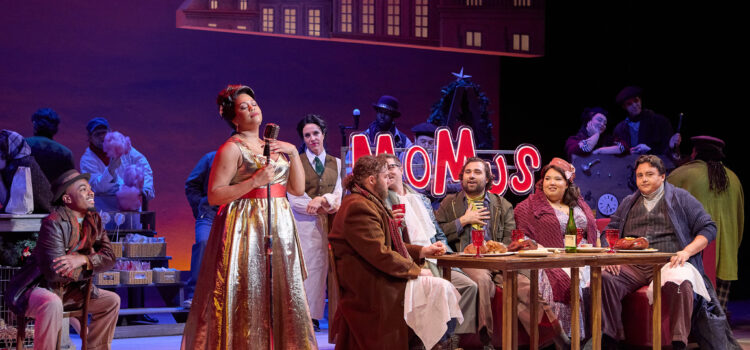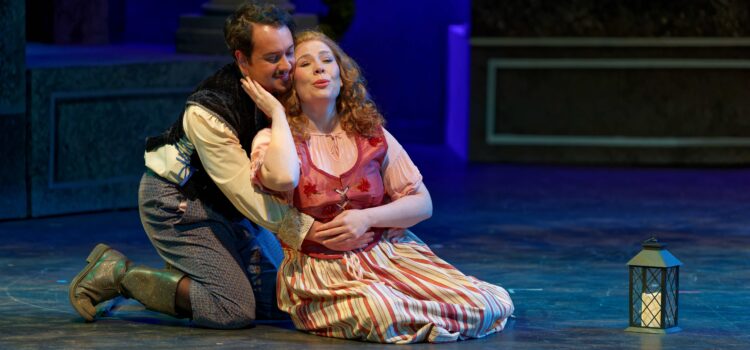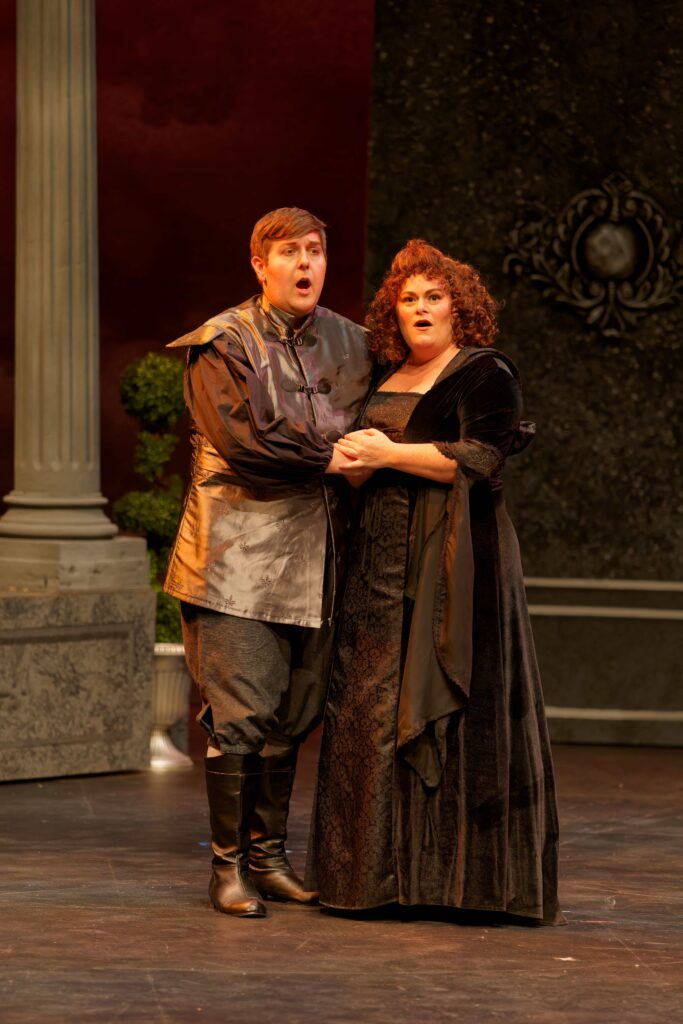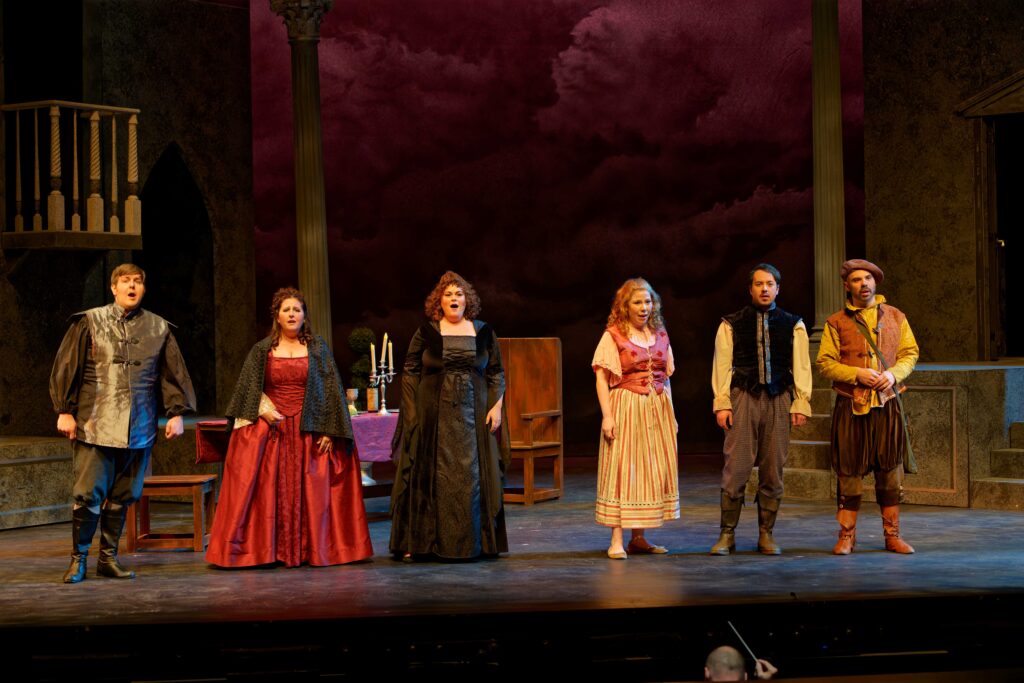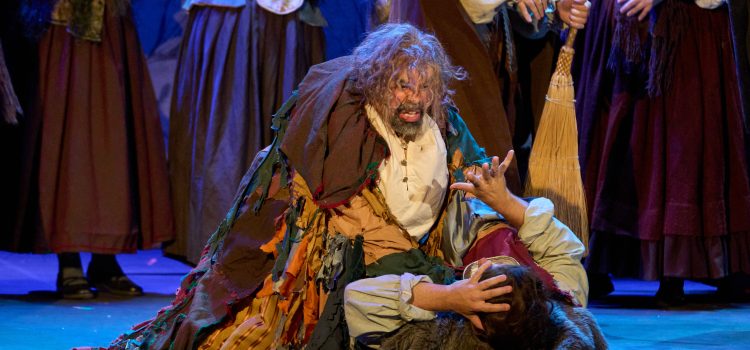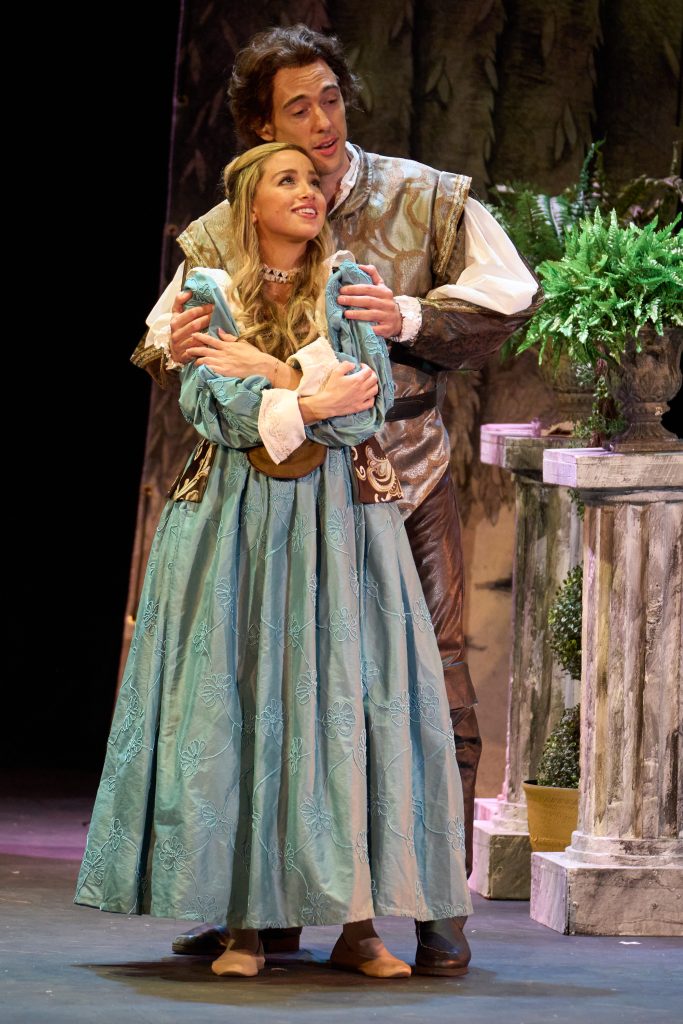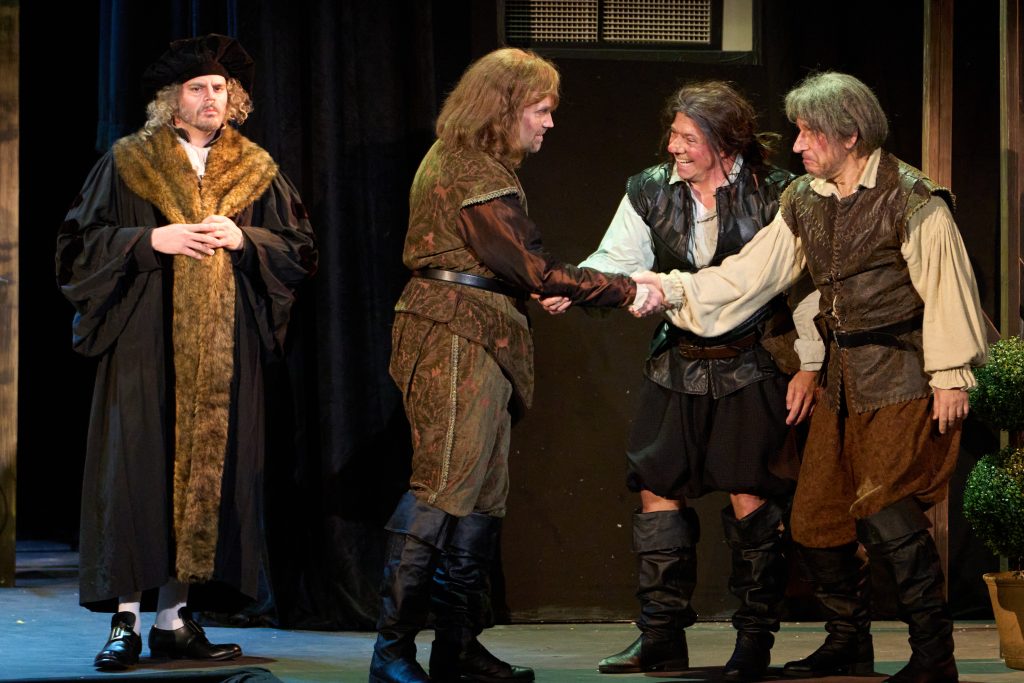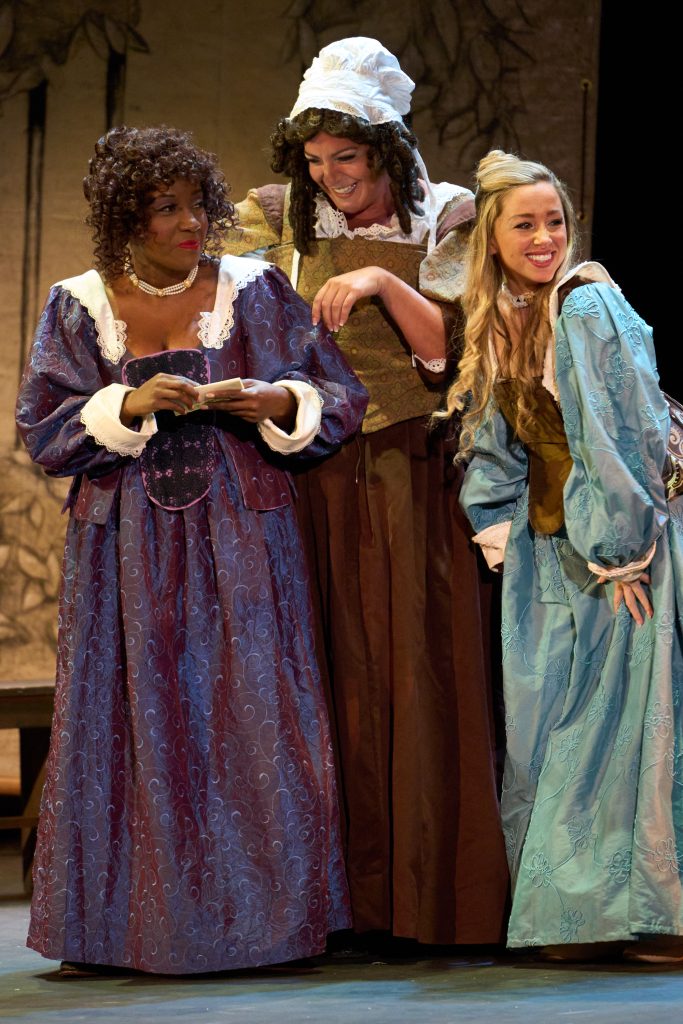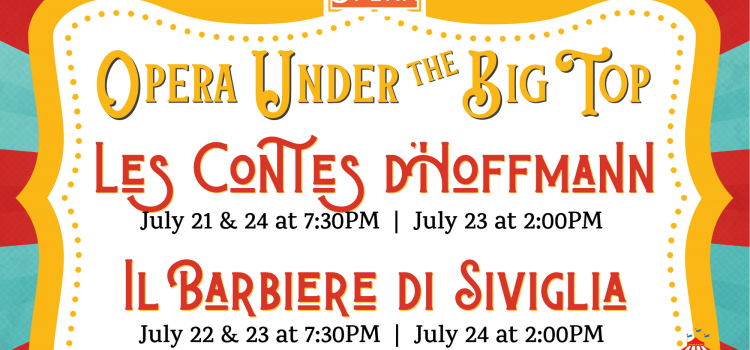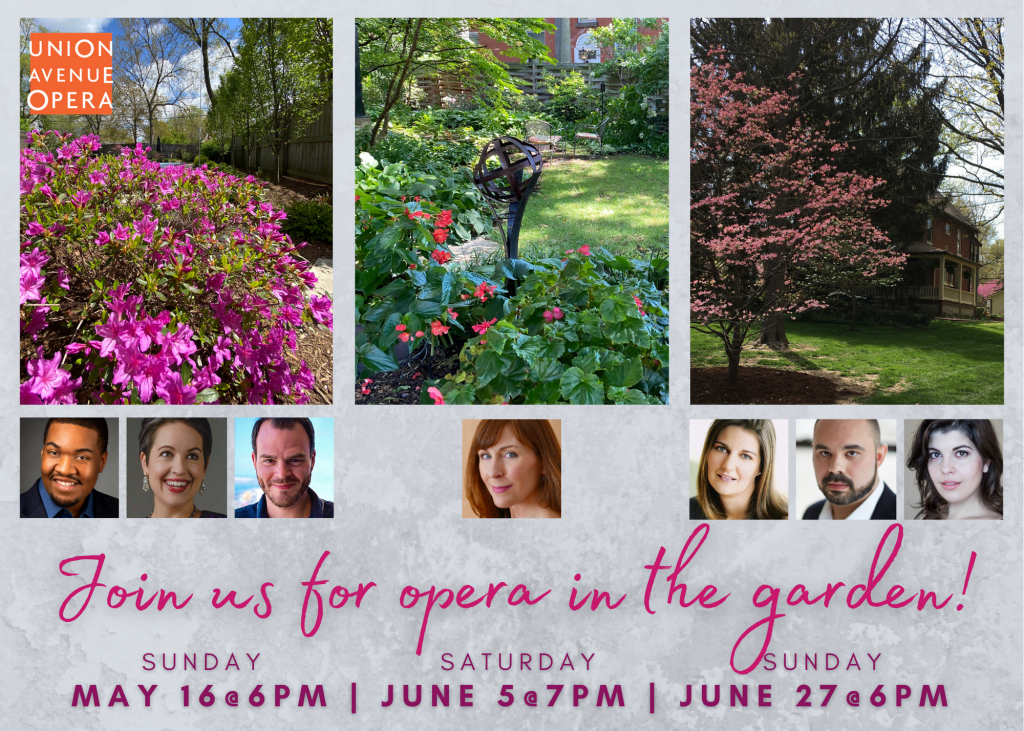By CB Adams
I shouldn’t admit this, but during the intermission at opening night of Opera Theatre of St. Louis’ production of “La Bohème,” I thought of Cher.
I should have been madly scribbling notes about all of the salient aspects of this Puccini classic, as all good reviewers should, but instead I was thinking of Cher’s performance as Loretta Castorini in the movie “Moonstruck.” Specifically, the scene when she’s discussing her experience having just attended “La Bohème.”
“I was surprised…” she says. “You know, I didn’t really think she was gonna die. I knew she was sick.”
The “she” is Mimi, and if Loretta had seen lyric soprano Katarina Burton’s performance, she might have realized that Mimi really was gonna die. That’s because Burton maintains a tightly controlled, authentic simplicity that draws attention to Mimi’s inner life and emotional journey. That journey is imbued with a subtle-but-persistent death-hauntedness – starting with a small, foreshadowing cough as she makes her entrance in the first act.
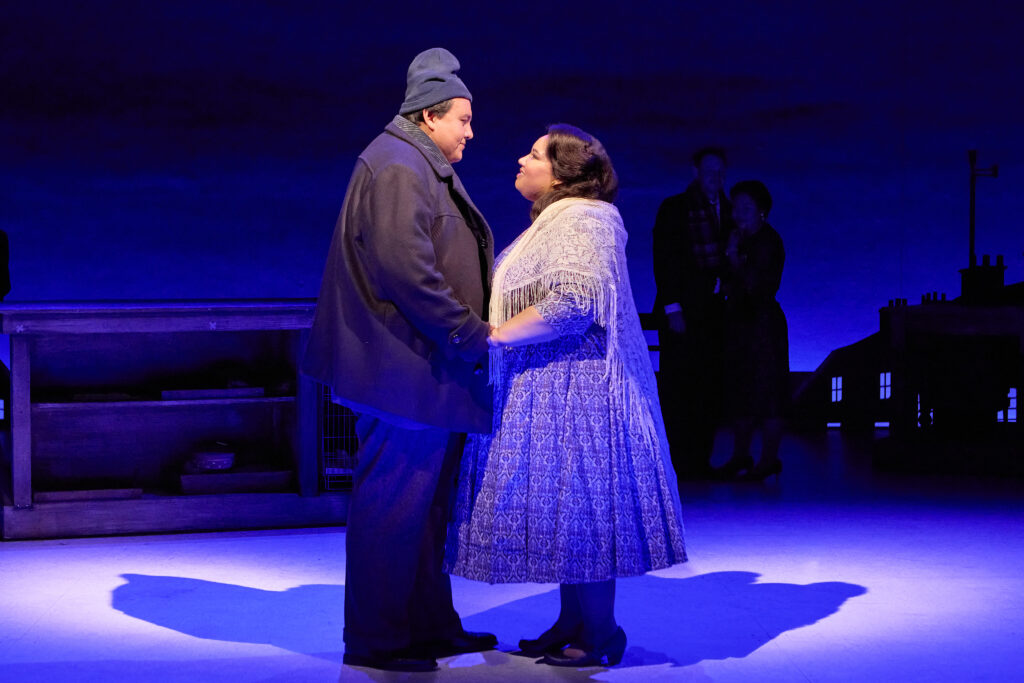
The specter of death makes Burton’s performance of Mimi’s deterioration compelling, tragic and all the (tragically) sweeter, especially her love and tribulations with Rodolfo. I hesitate to write that line because I’ve become more than bit disillusioned with the whole dying heroine trope. You know, “Terms of Endearment,” “Steel Magnolias,” “Hope Floats,” “Beaches,” etc., etc.
It’s to Burton’s credit that I suspended my dislike for this narrative device. Her voice conveys the necessary subtle nuances and delivers Puccini’s demanding melodies with a beautiful legato and emotional depth. She is a convincing actress who genuinely portrays Mimi’s joy, love and eventual (inevitable) suffering.
That was enough to win me over to Team Mimi – as was her chemistry with Rodolfo. The dynamic of this duo in their duets and emotional scenes provides a satisfying balance in these interactions.
If Burton’s Mimi foreshadows her journey with a small cough, Moisés Salazar’s’ Rodolfo faces his journey’s climax with the catch of his throat when he realizes Mimi has died. Salazar’s performance provides many confident and fine moments, but it is at that catch of the throat that rang the truest, most human and genuine. It’s also the moment that makes clear his journey of loss is just beginning.
Salazar exhibits a powerful and expressive tenor voice that ably conveys lyrical tenderness, dramatic intensity and a palpable emotional connection and chemistry with Mimi, enhancing the romantic and tragic dimensions of their relationship. His acting abilities enlivened his Rodolfo’s youthful ardor and eventual despair.
Brittney Renee achieves another bit of opera theater magic in the final act. In the first three, Renee delivers a Musetta who displays the requisite range of confident liveliness and flamboyance with a touch of naughtiness (Café Momus, anybody?). But it’s her act of kindness toward Mimi in fourth act that most humanizes the character. Renee’s compassion adds genuine depth to the role.
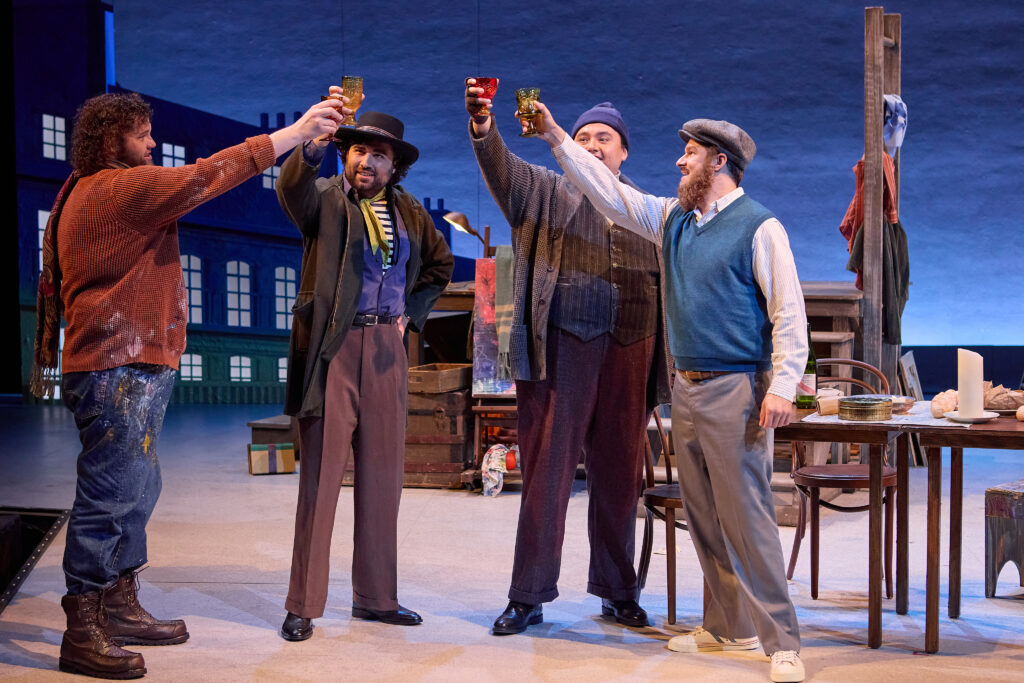
Great chemistry is a hallmark of this cast, especially among the Bohemians – Thomas Glass as Marcello, André Courville as the philosopher, Collins, and Titus Muzi III as Schaunard. Collectively and individually, their vocal abilities combined with seamless ensemble singing, maintains harmonic unity, but it is in their camaraderie and musical interplay provides the necessary chemistry to drive much of the opera’s emotional and narrative depth.
Proof that there are no small roles in theater is found in the minor character Parpignol, the toymaker and vendor who makes his one and only appearance in Act II. Levi Adkins inhabits the character who contributes to the effervescence of the abundant, bustling Christmas Eve scene.
Most memorable is his Napoleonic hat, red and white jacquard pantaloons and backpack drum, thanks to the efforts of costume designer Amanda Seymour as well as wig and makeup designers Krystal Balleza and Will Vicari.
Another memorable costume is notable for a very different reason. It’s Mimi’s periwinkle blue coat and purse in Act II. As Mimi opens her heart to Marcello outdoors, they interact in the cold outdoors. The way Burton clings to that handbag while standing in a coat that is too light for such cold, reveals volumes about the uncomfortable state of her character.
It’s moments like this when the collective efforts of the cast, director Michael Shell, set design (Takeshi Kata) and lighting design (Marcus Doshi) align to elevate a small moment.
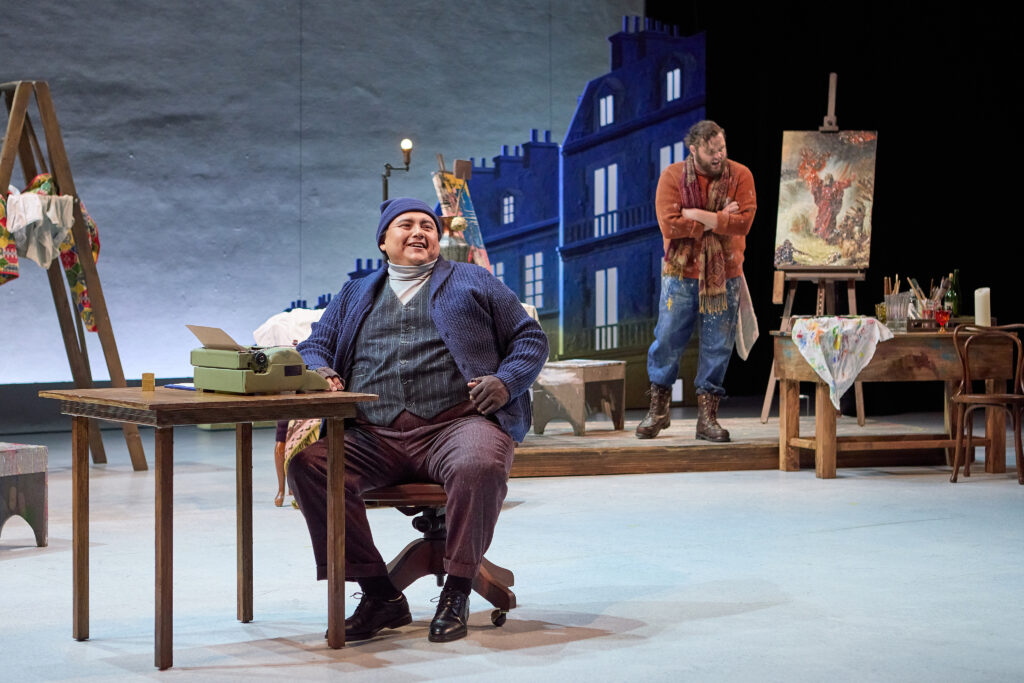
The members of members of the St. Louis Symphony Orchestra consistently provide terrific performances for OTSL performances – so much so that it’s easy to forget how important the music is. For “La Bohème,” the musicians, under the direction of José Luis Gómez, exquisitely convey the depth of characters’ sentiments and enhance the immersion in the poignant narrative.
As a member of the “chestnuts club,” opera’s “La Bohème” is like ballet’s “The Nutcracker” and can be counted on to put cheeks in seats. The regular appearance of a “La Bohème” of this quality should be celebrated because the opera stands up well to repeated viewings (and listenings) and is a good “gateway” to the artform. It’s like pressing replay, pulling on a favorite sweater or meeting a friend for lunch.
And, to invoke Cher once more, it makes me believe yet again “…in life after love..”
“La Bohème” is part of Opera Theatre of St. Louis 2024 repertory season continuing through June 30 at the Loretto-Hilton Center on the Webster University campus. For tickets or more information visit www.opera-stl.org.
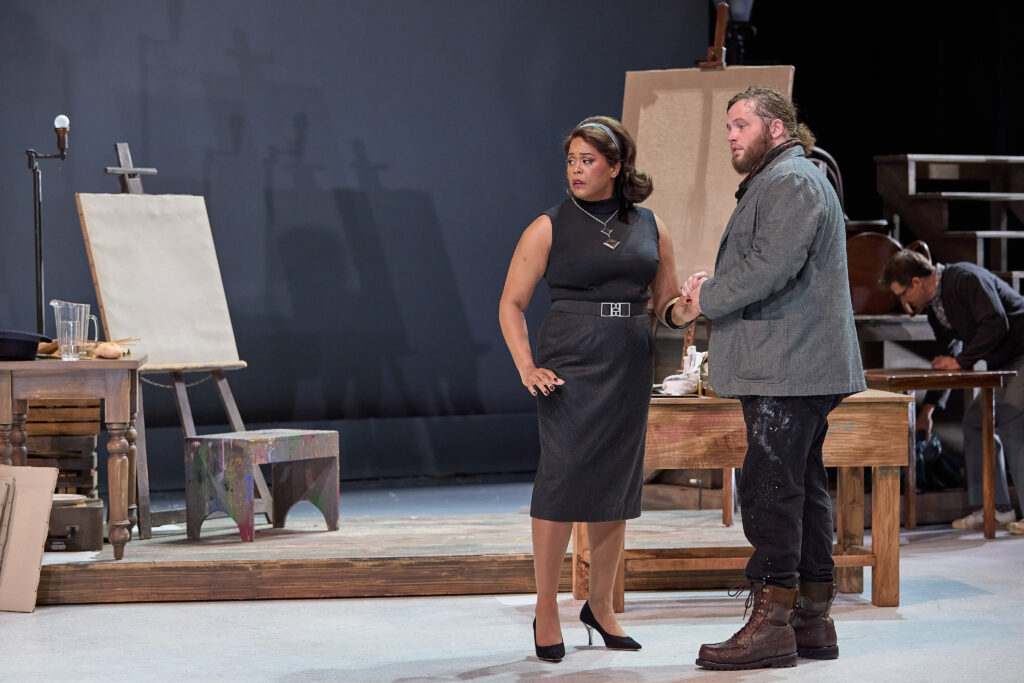
Cover photo: Brittany Renee as Musetta in Giacomo Puccini’s “La bohème.” Photo © Eric Woolsey

CB Adams is an award-winning fiction writer and photographer based in the Greater St. Louis area. A former music/arts editor and feature writer for the St. Louis Globe-Democrat, his non-fiction has been published in local, regional and national publications. His literary short stories have been published in more than a dozen literary journals and his fine art photography has been exhibited in more than 40 galley shows nationwide. Adams is the recipient of the Missouri Arts Council’s highest writing awards: the Writers’ Biennial and Missouri Writing!. The Riverfront Times named him, “St. Louis’ Most Under-Appreciated Writer” in 1996.

